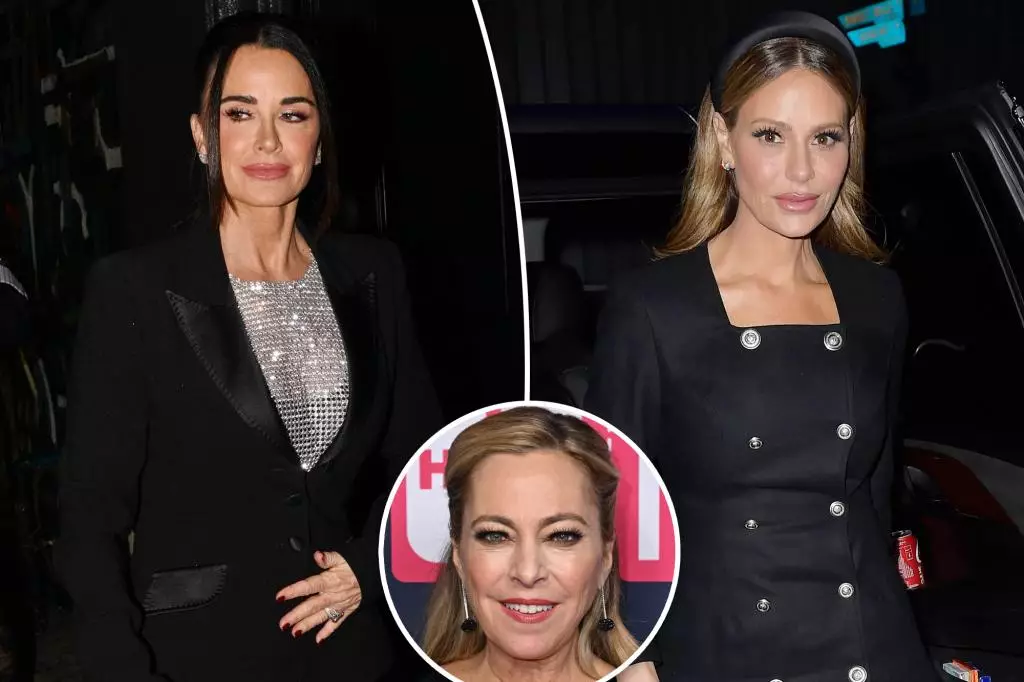In the glamorous realm of reality television, the boundaries between entertainment and personal critique often blur. A recent feud between “Real Housewives of Beverly Hills” stars Dorit Kemsley and Sutton Stracke highlights this unsettling trend, sparking a discussion about how conversation topics devolve from interpersonal conflicts to judgments about appearance and lifestyle. Kyle Richards, a long-standing member of the franchise, has vocalized her disapproval of such dialogues, emphasizing that the conversations surrounding people’s looks and finances are “ugly.” Richards’ comments bring to light the broader implications of image and self-worth in a society fixated on superficial standards.
The conflict ignited when Stracke participated in a light-hearted interview segment on MTV UK, aimed at guessing fellow Bravolebrities’ identities based on hints provided. When Kemsley’s photo appeared, the tone shifted. With phrases like “She holds grudges” and “she lives way above her means,” the conversation quickly transitioned from innocent fun to a veiled critique of Kemsley’s lifestyle. Stracke’s witty remark about Kemsley’s appearance—suggesting that anyone could look attractive with sufficient surgery—was particularly incendiary, further fueling the animosity between the two cast members.
Kemsley’s response was equally charged. In defending herself during a podcast interview, she playfully questioned why Stracke had not opted for similar enhancements if they were so readily available. This back-and-forth indicates an ongoing rivalry marked not only by unresolved personal grievances but also by a harsh critique of self-appearance, a prevalent theme in reality television narratives.
Beyond mere entertainment, this feud exposes the underlying social pressures that consume individuals within the reality TV landscape. Producers often encourage contentious storylines that can detract from genuine personal representation, leading to harmful generalizations. By engaging in discussions filled with barbed comments about aesthetics, Stracke and Kemsley perpetuate a cycle of scrutiny that extends beyond their television personas and into their private lives. Richards’ stance against such interactions portrays a yearning for a more respectful dialogue among co-stars—a call for civility in an industry that thrives on drama.
As the fourteenth season of “RHOBH” approaches, viewers are left to wonder how these tensions will continue to unfold. The current landscape of reality television often prioritizes conflict over connection, and the on-screen drama serves as a reflection of real societal attitudes towards beauty and success. Kemsley and Stracke’s feud, with all its biting remarks and undercurrents of jealousy, invites fans to reconsider the implications of celebrating such ugliness in their favorite shows.
Looking ahead, it is crucial for both the cast and audience to navigate these conversations thoughtfully. As we indulge in the escapism that reality TV offers, let it not be at the expense of empathy and kindness. Instead of perpetuating superficial dialogues, perhaps we can lean into narratives that promote acceptance and understanding—an essential evolution for both the participants and fans of “The Real Housewives” franchise.

